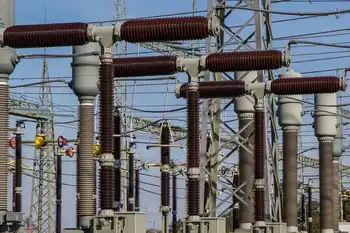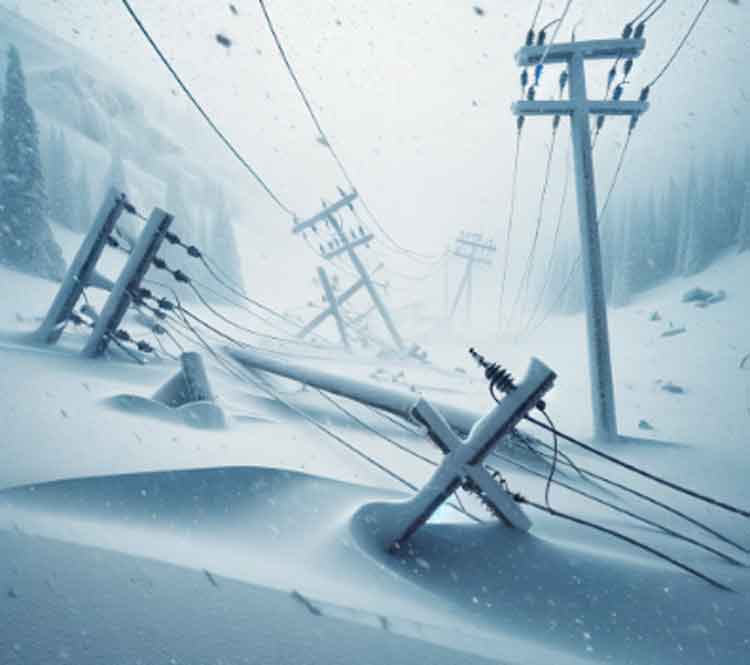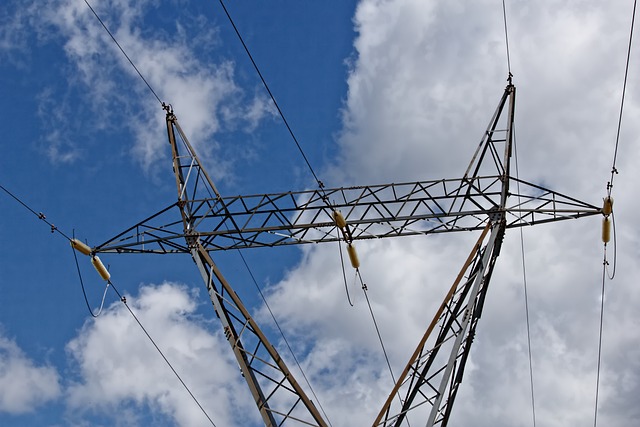Project examines potential for Europe's power grid to increase HVDC Technology

NFPA 70e Training
Our customized live online or in‑person group training can be delivered to your staff at your location.

- Live Online
- 6 hours Instructor-led
- Group Training Available
HVDC-WISE Project accelerates HVDC technology integration across the European transmission system, delivering a planning toolkit to boost grid reliability, resilience, and interconnectors for renewables and offshore wind amid climate, cyber, and physical threats.
Key Points
EU-funded project delivering tools to integrate HVDC into Europe's grid, improving reliability, resilience, and security.
✅ EU Horizon Europe-backed consortium of 14 partners
✅ Toolkit to assess extreme events and grid operability
✅ Supports interconnectors, offshore wind, and renewables
A partnership of 14 leading European energy industry companies, research organizations and universities has launched a new project to identify opportunities to increase integration of HVDC technology into the European transmission system, echoing calls to invest in smarter electricity infrastructure from abroad.
The HVDC-WISE project, in which the University of Strathclyde is the UK’s only academic partner, is supported by the European Union’s Horizon Europe programme.
The project’s goal is to develop a toolkit for grid developers to evaluate the grid’s performance under extreme conditions and to plan systems, leveraging a digital grid approach that supports coordination to realise the full range of potential benefits from deep integration of HVDC technology into the European transmission system.
The project is focused on enhancing electric grid reliability and resilience while navigating the energy transition. Building and maintaining network infrastructure to move power across Europe is an urgent and complex task, and reducing losses with superconducting cables can play a role, particularly with the continuing growth of wind and solar generation. At the same time, threats to the integrity of the power system are on the rise from multiple sources, including climate, cyber, and physical hazards.
Mutual support
At a time of increasing worries about energy security and as Europe’s electricity systems decarbonise, connections between them to provide mutual support and routes to market for energy from renewables, a dynamic also highlighted in discussions of the western Canadian electricity grid in North America, become ever more important.
In modern power systems, this means making use of High Voltage Direct Current (HVDC) technology.
The earliest forms of technology have been around since the 1960s, but the impact of increasing reliance on HVDC and its ability to enhance a power system’s operability and resilience are not yet fully understood.
Professor Keith Bell, Scottish Power Professor of Future Power Systems at the University of Strathclyde, said:
As an island, HVDC is the only practical way for us to build connections to other countries’ electricity systems. We’re also making use of it within our system, with one existing and more planned Scotland-England subsea link projects connecting one part of Britain to another.
“These links allow us to maximise our use of wind energy. New links to other countries will also help us when it’s not windy and, together with assets like the 2GW substation now in service, to recover from any major disturbances that might occur.
“The system is always vulnerable to weather and things like lightning strikes or short circuits caused by high winds. As dependency on electricity increases, insights from electricity prediction specialists can inform planning as we enhance the resilience of the system.”
Dr Agusti Egea-Alvarez, Senior Lecturer at Strathclyde, said: “HVDC systems are becoming the backbone of the British and European electric power network, either interconnecting countries, or connecting offshore wind farms.
“The tools, procedures and guides that will be developed during HVDC-WISE will define the security, resilience and reliability standards of the electric network for the upcoming decades in Europe.”
Other project participants include Scottish Hydro Electric Transmission, the Supergrid Institute, the Electric Power Research Institute (EPRI) Europe, Tennet TSO, Universidad Pontificia Comillas, TU Delft, Tractebel Impact and the University of Cyprus.
Climate change
Eamonn Lannoye, Managing Director of EPRI Europe, said: “The European electricity grid is remarkably reliable by any standard. But as the climate changes and the grid becomes exposed to more extreme conditions, energy interdependence between regions intensifies and threats from external actors emerge. The new grid needs to be robust to those challenges.”
Juan Carlos Gonzalez, a senior researcher with the SuperGrid Institute which leads the project said: “The HVDC-WISE project is intended to provide planners with the tools and know-how to understand how grid development options perform in the context of changing threats and to ensure reliability.”
HVDC-WISE is supported by the European Union’s Horizon Europe programme under agreement 101075424 and by the UK Research and Innovation Horizon Europe Guarantee scheme.











